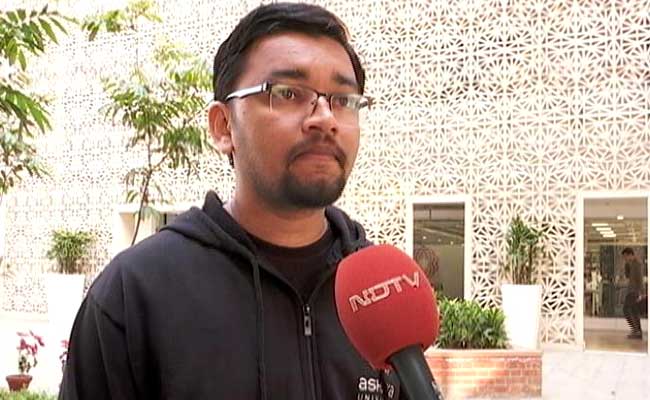While the government notification is expected to raise the prices of more than 70 life-saving drugs, it is expected to hit haemophiliacs the hardest.
Sonepat:
Harshal Kale fears total disability. The 26-year-old software engineer suffers from haemophilia - a genetic blood disorder that prevents clotting and needs at least Rs 1 lakh a month for treatment.
Unable to get treatment for half his life, Harshal has massive swellings in his ankles, the result of internal blood accumulation every time he suffers an injury. He needs two shots of the Anti-Haemophiliac Factors a week to keep off further accumulation.
But the government's recent decision to withdraw custom duty exemptions for imported medicines means his cost of treatment will go up by Rs 32,000 a month.
"I will not be able to afford it and I hope this will not lead to further deformities," Harshal said. He had quit his job in 2015 to pursue a Young India fellowship.

While the government notification is expected to raise the prices of more than 70 life-saving drugs, it is expected to hit haemophiliacs the hardest, since the medicines required to treat them have to be imported.
Anti-Haemophillic Factor (VIII and IX) is used to treat Haemophilia. On an average, in an acute case, a patient needs 4000 units of blood factor a week, 50,000 annually. With each unit costing Rs 20, the cost of treatment annually can be Rs 10 lakh.
This expense is likely to go up by 20% after the Factor VIII and IX being removed from the list. And it will make treatment unaffordable for India's 3 lakh patients, who are living with this condition.
The government's push for "Make in India" - which activists say is at the bottom of the withdrawal of duty exemptions - is unlikely to be of any help to them, at least in the short term.
"Though recently India has started manufacturing blood factors, the scale is extremely insufficient," said advocate Leena Menghaney, who works extensively towards affordable medicines.
"The government should have consulted the Haemophilia society before this decision because the Factor shots are imported," she added.
Unable to get treatment for half his life, Harshal has massive swellings in his ankles, the result of internal blood accumulation every time he suffers an injury. He needs two shots of the Anti-Haemophiliac Factors a week to keep off further accumulation.
But the government's recent decision to withdraw custom duty exemptions for imported medicines means his cost of treatment will go up by Rs 32,000 a month.
"I will not be able to afford it and I hope this will not lead to further deformities," Harshal said. He had quit his job in 2015 to pursue a Young India fellowship.

Harshal Kale needs two shots of the Anti-Haemophiliac Factors a week to keep off further accumulation.
While the government notification is expected to raise the prices of more than 70 life-saving drugs, it is expected to hit haemophiliacs the hardest, since the medicines required to treat them have to be imported.
Anti-Haemophillic Factor (VIII and IX) is used to treat Haemophilia. On an average, in an acute case, a patient needs 4000 units of blood factor a week, 50,000 annually. With each unit costing Rs 20, the cost of treatment annually can be Rs 10 lakh.
This expense is likely to go up by 20% after the Factor VIII and IX being removed from the list. And it will make treatment unaffordable for India's 3 lakh patients, who are living with this condition.
The government's push for "Make in India" - which activists say is at the bottom of the withdrawal of duty exemptions - is unlikely to be of any help to them, at least in the short term.
"Though recently India has started manufacturing blood factors, the scale is extremely insufficient," said advocate Leena Menghaney, who works extensively towards affordable medicines.
"The government should have consulted the Haemophilia society before this decision because the Factor shots are imported," she added.
Track Latest News Live on NDTV.com and get news updates from India and around the world

